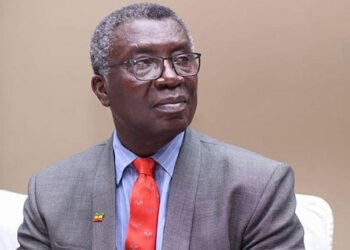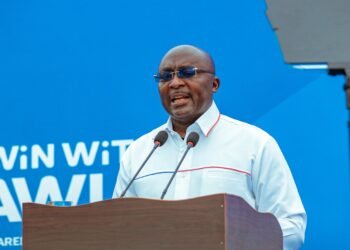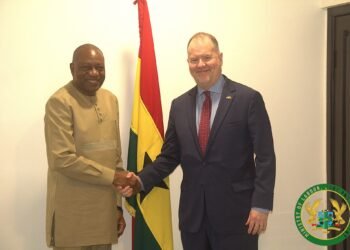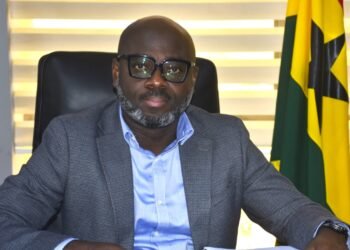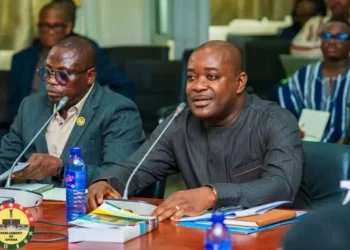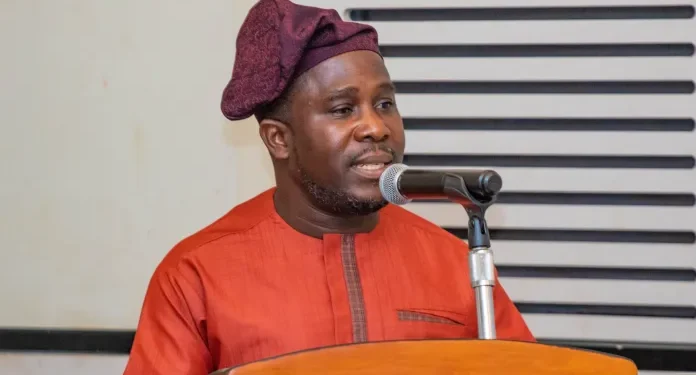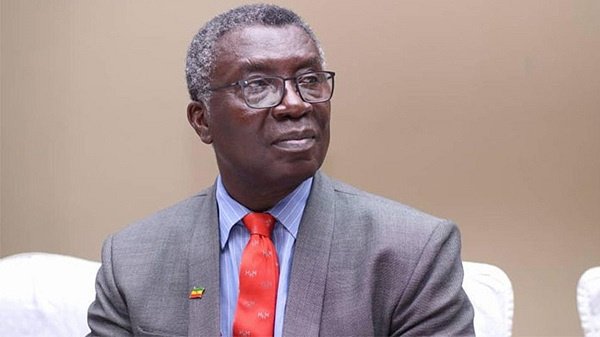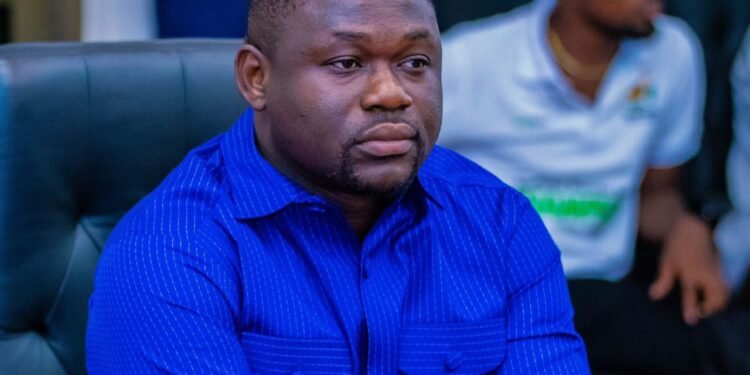Economist and Political Risk Analyst, Dr. Theo Acheampong, has urged the government to confront the powerful financiers and political figures who sustain illegal mining operations, warning that without targeting these actors, Ghana’s fight against galamsey will remain futile.
Dr. Acheampong argued that the focus on deploying soldiers, banning activities, or creating new committees has only offered temporary relief while leaving the deeper problem unresolved.
He noted that research consistently points to the involvement of influential individuals with links to political parties, who provide funding and logistical support for illegal mining networks. In his view, the state has avoided dealing with these “big men,” yet they remain central to the industry’s survival.
According to him, tackling galamsey requires choking off the financial flows and procurement channels that keep the business thriving. Military interventions or even declaring states of emergency can only partially address the crisis if the structural systems that enable the trade are left untouched.
He further highlighted the critical role of the Ghana Gold Board (Goldbod), which is mandated to aggregate gold from small-scale miners. For this body to succeed, Dr. Acheampong stressed the need for strict traceability measures to guarantee that no illegally mined gold enters the formal supply chain.
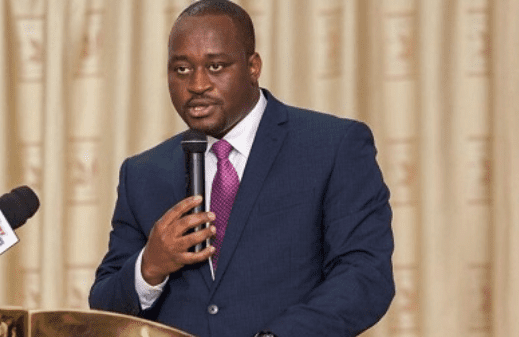
The Gold Board Act already provides for such systems, but implementation has been slow. He noted that the government is reportedly working with a private firm to establish traceability processes and urged that this be rolled out without delay.
The economist underlined that the traceability system must establish a clear chain of custody from mine site to export, ensuring that gold bought by the state can be proven to originate from legal and licensed operations.
This, he argued, is essential not only for transparency but also for protecting the integrity of Ghana’s foreign exchange earnings, given the centrality of gold to the economy.
Recent Bank of Ghana data illustrates the point. From January to August this year, total export receipts stood at around $18 billion, with gold alone contributing more than $11 billion. This dominance, Dr. Acheampong explained, makes it even more critical to secure the sector from illegal infiltration.
Allowing galamsey gold to flow into official channels risks undermining the credibility of Ghana’s exports and the sustainability of its resources. He also drew attention to proposals by both major political parties to formalize aspects of small-scale mining.

These include “green artisanal mining zones” that would allow cooperatives of miners to operate legally within designated areas using more environmentally responsible methods.
Although these ideas have been captured in manifestos, progress on implementation has been minimal, leaving illegal operations to expand into rivers and forest reserves.
Dr. Acheampong cautioned that unless Ghana confronts the entrenched political and financial networks enabling galamsey, the country will remain trapped in a cycle of destruction. He emphasized that the issue goes beyond the image of poor miners digging along riverbanks.
The real threat, he said, comes from the well-resourced actors who fund operations and shield them through their political connections. The consequences of inaction are already evident. Rivers such as the Pra, Offin, and Ankobra continue to suffer from severe pollution, while forest reserves are being depleted at alarming rates.
Communities are losing farmland, water sources are contaminated with mercury and other chemicals, and the long-term ecological damage is mounting. Despite successive government interventions, from Operation Vanguard to the Inter-Ministerial Committee on Illegal Mining, illegal mining has proven resilient.
For Dr. Acheampong, the way forward lies in a two-pronged strategy: enforcing traceability in the gold trade and dismantling the political-financial networks behind galamsey.

He maintained that Ghana cannot rely solely on security crackdowns to solve the problem. Instead, systemic reforms and political will are required to target those who profit most from the destruction.
His remarks add to growing frustration among environmental groups, civil society, and ordinary citizens who have watched the country’s water bodies and forests deteriorate despite repeated promises by governments to end galamsey.
By shifting the spotlight onto the financiers and political protectors of illegal mining, Dr. Acheampong’s intervention highlights a difficult but necessary frontier in the battle against one of Ghana’s most pressing challenges.
READ ALSO: GoldBod CEO Credits Mahama’s Vision for $6 Billion Surge in Gold Sales




